The decade-old desi VC of India, IDG ventures
It's a Saturday. Sudhir Sethi and the IDG Ventures team are in office. They are here to meet a startup looking to raise seed funding. They scheduled this meeting as they were told that the startup is meeting another investor on Tuesday. The meeting goes well and IDG is convinced with the team and idea. Two days later, on Monday, they close the deal. The startup never went for the Tuesday meeting.
Right from the beginning, IDG Ventures India believed that the power of choice lies with the entrepreneur, and investors are the ones who have to compete to get onboardthe journey with the most promising player if they want to succeed.
Starting its eleventh year of operations today, IDG Ventures has come a long way to be recognised as one of the most successful early-stage investors in India. With a strength of 60 portfolio companies, boasting the likes of Lenskart, FirstCry, Myntra(acquired by Flipkart) and Zivame, IDG has made arguably some of the best investment decisions across sectors.
YourStory caught up with the team at IDG to trace their journey of a decade.
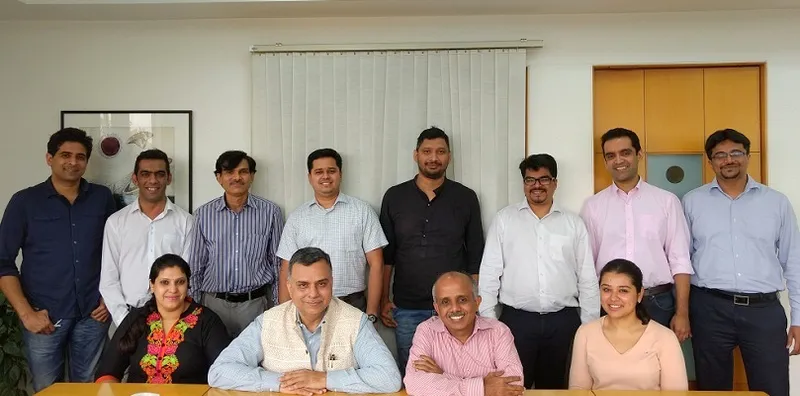
Birth of the 'Venturepreneur'
Sudhir Sethi, Founder Chairman & Managing Director of IDG Ventures, India, has been a venture capitalist since 1998. His first stint in the industry was as the Country Head at Walden International, the first Silicon Valley-based venture firm to establish a presence in India.
He met 279 entrepreneurs in the first year itself. Eventually, he worked on closing 11 deals for the company over four years, with Mindtree being its most successful investment. He learnt his first set of lessons as an investor there. As venture investing isn’t taught in MBA, an entrepreneur is an investor’s biggest teacher in this industry. Sudhir believes that an entrepreneur looks at a product or service to serve a need that has not been served before. A research report doesn’t help a lot here as it’s based on analysis of the market that is serving current needs. He said,
Entrepreneurship is about unstructured growth; it’s about rapid growth, unmanageable growth, about disruptive services that never existed before. It is about a David taking on a Goliath.
Later, Sudhir retitled himself from an 'investor' to a 'venturepreneur'.
Within two years of Sudhir joining Walden International, venture investing faced a slowdown(in 2000). It was only later that he realised that that some of the best firms the company invested in came out of slowdown. He learnt that the early-stage startup ecosystem doesn’t look if the market is going down or up. It’s entirely driven by an entrepreneur and his quest to solve a problem and to disrupt.
4-page document + 150 min meeting = $150 million

In my interaction with the team members at IDG, I figured that everyone’s obsessed with numbers. Sudhir remembers almost all key dates and time in his journey as investor. TC Meenakshisundaram(TCM), the other founder and Managing Partner, could recall the phone numbers of some of the portfolio companies’ founders. Same was the case with other partners at the firm as well.
Speaking about the beginnings of IDG Ventures India, Sudhir recalls,
I met Patrick McGovern, Founder of IDG, on May 21, 2006, Sunday, 9:30 AM at Oberoi Hotel, Bengaluru. I was given 30 minutes but we came out after two-and-a-half hours. I gave a four-page document in my presentation. It was my business plan to raise $100 million.
At 9 PM on June 21, 2006, Sudhir got a call from Patrick. “He said, 'Sudhir, you should expand that $100 million to $150 million'.” Sudhir was keen to know if Patrick would anchor him for that. To his surprise, he agreed to anchor the full $150 million. Patrick was a bigger venturepreneur than Sudhir thought.
So, what was in the four-page document that helped Sudhir raise $150 million with just one meeting? Sudhir shares, “The document mentioned what kind of companies we’ll fund, what will be the focus sector, what we will need, team members, plans for team and starting date.” Soon, a Swiss investor also came on board, and three months later, IDG ventures India was born on September 1, 2006, the date proposed by Sudhir in his four-page document.
VCs don't grow on trees
The market realities made Sudhir realise that it’s going to be hard to hire VCs from outside. So, he started building his team instead. He got team members whom he (and TCM) knew were very strong professional members, had great sense of ethics and started grooming them. One of the unique things IDG Ventures started doing was taking two board seats in each (investee) company - one for the partner and one for an associate. This meant that a youngster who joined IDG would be on a board of a company within the first 12 months. While this was a matter of pride for the new joinee it also goaded them to work harder. They were constantly finding ways and means toadd value to the company and to prove to the entrepreneur that they are worthy of being a board member of the company.
Sudhir says,
Karthik, who joined us as a summer intern from IIM Bangalore, became a partner in five-and-a-half years. In fact, he's the youngest promoted partner in the country. Ranjith joined us in 2008 as an associate, and became a partner a few years ago. Karan Mohla joined as a senior associate six years ago. He’s now a partner. We have partners grown inside the firm and it's valuable for us.
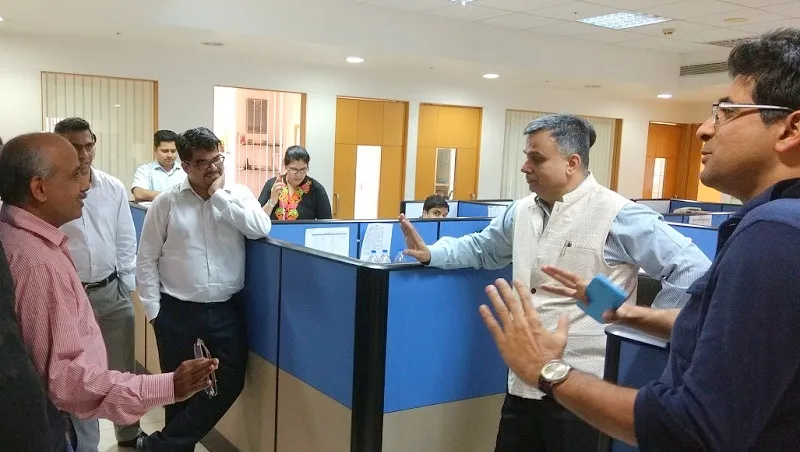
10 years, 60 companies, $500 million invested
IDG invested in 21 companies with their first fund of Rs 600 crores. Their second fund was sized Rs 600 crore and third one Rs 1,400 crore. With a portfolio of 60 companies, almost $500 million is under assets and management at IDG. The firm is deploying almost Rs 300 crore every year right now and has a few exits to its credit as well, including Manthan Software Systems.

Online baby products company FirstCry raised $12 million in 2012 from IDG and hasn't looked back since. Supam Maheshwari, CEO and Founder of the firm, says, "IDG always had a meaningful way to get into details without getting into the day-to-day operations. This sort of helicopter management gives the entrepreneur a much needed comfort." He believes that IDG’s conviction in the team and quick support system for key decision making has been helpful for the company across all stages.
Amarendra Sahu, Co-founder of home rental marketplace NestAway, has similar thoughts about IDG. He says,
They want us to win and their conviction[about NestAway] is encouraging. They understood our domain and key things and have helped us with key hires and even in solving broader customer issues.
Making the market leaders, since 2007
IDG has managed to distinguish itself by its investments. Every year, one or more companiesit invests in go on to become a market leader. In 2007, they invested in Manthan (exited in 2014), which is a market leader in retail analytics product. Their 2008 investee Myntra (bought by Flipkart in 2014) is the market leader in fashion e-commerce in India. Lenskart, which raised funding in 2011, captures a majority of market share in its segment. FirstCry, Zivame, and NewGen are an addition to the list. Sudhir says,
These were the Davids when we invested, and they are now beating incumbents (Goliaths) in the game.
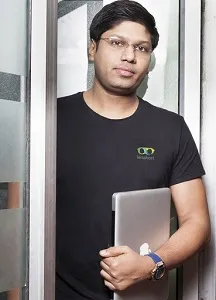
According to Peyush Bansal, CEO, Lenskart, IDG's biggest strength is their clarity of thought on business, which is aligned with the entrepreneur's vision and is less dependent on ‘market fear’ (and more on their research). Over the course of time, he found them very transparent and genuine. He was pleasantly surprised to see IDG participating in follow-up funding rounds of Lenskart. He adds,
As an early-stage investor, they had already made 20x returns and their capacity and courage to participate at this level(Series D) with an expectation to see the company growing even further.This boosts the confidence of the entrepreneur and new investor.
The decade-old value system
Sudhir considers the IDG team as the firm's biggest achievement. He believes that it's unsurpassed, and that makes him look forward to the next 10 years. Like an entrepreneur, Sudhir has paid a lot of attention to the company’s culture, philosophy and way of working. The team listed down its value system in the first year of existence. Sudhir says,
What holds the firm together is not the money and not the success, but the value system.
IDG’s code of conduct includes how to behave with an entrepreneur and how not to cross the line.
Sudhir says,
The freedom of an entrepreneur is sacrosanct to run a company. Our role is supportive in nature and restricted to mentoring and assisting only.
He believes that there’s tremendous amount of accountability at IDG to people,and they respect the entrepreneur because he/she is their teacher.

Big data startup Peel-Works raised Series-A funding from IDG in 2014. Sachin Chhabra, Founder and CEO of Peel-Works, acknowledges, "The quality of professionalism and maturity as an early-stage investor displayed by IDG is impressive. They have an ability to help a company navigate through follow-up rounds."
Sudhir believes that an investor needs to get into the mind of the entrepreneur to understand him/her better. He/she should be humble enough to say, 'I don't know what an entrepreneur knows'.
Sudhir doesn't pick any favourites from the IDG portfolio, but says,
I like the way some of the younger entrepreneurs are building superb organisations like Unbxd, Uniphore, Peelworks, Cloudcherry, Rentomojo, Flyron, Little Black Book, PopXo, and CreditMantri.
IDG is increasingly funding women entrepreneurs recently. PopXo, Flyrobe, Zivame, and LittleBlackBook are founded by women entrepreneurs. Sudhir believes that these young ladies have broken the glass barriers to build amazing companies. Number of women consumers are going to only increase in future and so will be their participation in startups.
Why rupee capital is important
IDG Ventures India is pushing for more local capital to be infused in the fund. IDG started using rupee capital in 2013. Sudhir explains,
In China, almost 60 percent of venture capital is local money. In India, it's less than five percent. There's a lot of wealth in India and it's going into real estate and stock market.
IDG started talking to rupee investors in 2012 and raised rupee fund along with a dollar fund in 2013, which Sudhir considers is a gem of a strategy. Today, IDG has raised nearly $100 million from India, from large family offices and small family offices. Kris Gopalakrishnan, one of Infosys' founders, is one of the most active investors in IDG Ventures India fund.
Sudhir says,
There's a difference between a rupee investor and a dollar investor. Dollar investor is macro in nature while rupee investor is, on the ground, micro in nature. It's a great value-add. If Indians are investing in India, the international investors gain confidence.
Sudhir believes that there's a lot of family office capital, corporate capital, banks, and insurance companies capital that can fund Indian risks alternative assets like IDG. They can fund VC firms.
Investment strategies
When IDG started, their strategy on a broad level was investing in consumer, software and engineering startups. They started slicing it as they moved forward. For example, consumer Internet had a sub-category called e-commerce. Sudhir recalls,
We quickly decided that we'll do high margin e-commerce, because the economics and approach towards profitability will not work in low margin e-commerce businesses. Hence, we did not invest in electronics e-commerce consciously.
Lenskart, FirstCry, and Zivame are medium-to-high margin e-commerce. Fashion is the largest category in e-commerce with high margins too. Earlier, there was no horizontal e-commerce. Snapdeal and Flipkart didn't interest IDG then, owing to them being low-margin e-commerce businesses.
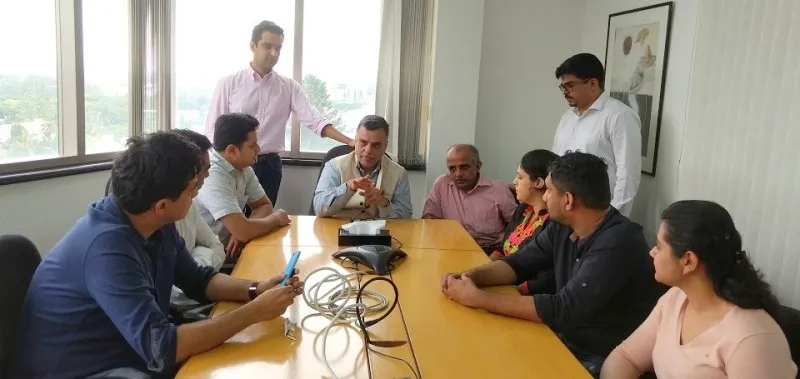
The company noticed engineering first in medical devices and hence invested in Perfint Heathcare and Forus Health in the oncology and ophthalmology area. One can say that IDG’s engineering investment strategy later morphed into medical devices.
In its second fund, IDG decided to go further and look at what's not being served and invested in. Agriculture e-commerce company Agrostarfit the bill. Sudhir says, “Today when we look into digital consumer and software there are about seven sub-sectors inside each of them, healthcare has four, and we added fintech last year."
In the past, IDG shifted its investment focus from an inventory model to a marketplace model. The firm believes that the next phase of growth lies in rented models. Rentomojo and Nestaway are aligned on those line. The firm believes that the rental market has not yet leveraged technology to their full potential.
For K Chandrasekhar, Founder and CEO, Forus Health, IDG's understanding of the uniqueness of medical devices industry was convincing enough to choose them as investors (along with Accel Partners). He said, "As an entrepreneur, you want your freedom to operate and trust of an investor to grow in a long run." Having Lenskart and Perfint Healthcare in their investor's portfolio, has also helped Forus in some ways.
Something IDG routinely spends quality time getting to know the founder of the company it invests in. So far, the team has observed certain qualities of a founder that are very important for the success of the company:
- Comfort with the unknown and with rapid change - Because a technology entrepreneur is building a new business 'where no man has ever gone before', as Captain Kirk of Star Trek said.
- Flexible - It's not assured that capital will come all the time. Therefore, they showcase the ability to drill down when there is less capital. They also have the ability to scale up. They have the strategic sense and can roll up their sleeves and work at the ground-level in the trenches.
Entrepreneur-VC relationship
IDG partners are active board members in the investee companies. They bring governance, financial discipline and value-add in strategy and hiring. Sudhir says,
Being a founder is very lonely at the top because the founder is thinking constantly ten steps ahead of his team. He or she needs to bounce off ideas. They do that with their team but there are certain things that you can only do with somebody experienced.
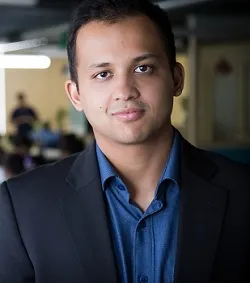
That's where mentoring comes into play. He adds, “Our goal as investors and board members is to understand if we can be the first stop for the founder for brainstorming and mentoring.”
Pavan Sondur from Unbxd finds IDG as an entrepreneur-first company(investor). He says they have been hugely benefited by IDG in making strategic decisions and in raising money.
When things go wrong
When things are not going well with their portfolio companies, IDG goes ahead and tells the entrepreneur what's not working. They attack the problem and not the messenger. Sudhir says,
“We encourage our entrepreneurs to give us the bad news every day in the morning. If something is not going right, we want to be the first ones to know, because we think we can help. We have seen over 10,000 companies as a team since 2006. And if they aren't solving the problem then it's imperative for us to stop funding the company and we have done that many a time.”
Sudhir believes that the reason why a company did not succeed has nothing to do with the value the company is building. An investor invests because they want certain return and they may get out because the company is not giving the returns. But the company may still be valuable in the eyes of the entrepreneur. Sudhir shares,
In many cases, if we believe that this is the end of the line for us, then we sell the shares back to the entrepreneurs. Once we're on the board of a company, its failure is both our responsibility as well as the entrepreneur's.
The engines to power the growth in the next decade
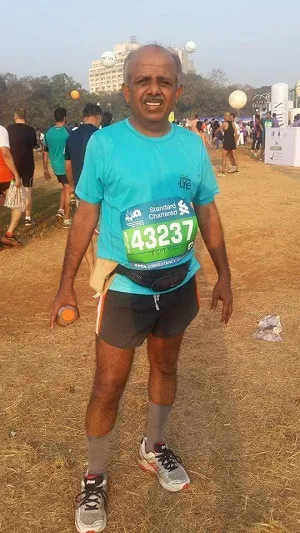
Sudhir believes that the following four engines will power the growth of IDG ventures in the next decade. The key remains to build the team stronger:
- Continue to strengthen the deal flow - IDG gets majority of deal flow but not all. The firm wants to position itself as the first stop for entrepreneurs from healthcare, consumer, fintech, and the software sector. They have innovation programmes planned in digital, software, healthcare, and fintech space to achieve this. There will be a lot of companies around India stack, around the UPI and Aadhaar. Those will be very good for growth.
- The monitoring and growth engine –IDG believes it can help its portfolio companies to repeatedly raise capital, thereby strengthening the financial infrastructure inside the company.
- Further strengthen IDG's exit engine.
- Further strengthen IDG's fund raising.
In the next 10 years, IDG will be present in three Indian cities.
According to Sudhir, there are three kinds of venture capitalists in India:
- Global brand, global firm.
- Global brand, desi firm.
- Desi brand, desi firm.
IDG is positioned in the second category. The positioning of a global name with a desi name is a unique positioning. He says,
There's no global VC fund from India. If there's space for a venture fund to be a global VC fund from India, you can see IDG there.







